FDA Admits that Vaccines Spread to Unvaccinated
Source: The Iron Wire
(0:00 - 0:29) Good evening, I'm Will Dove and these are the top stories for Thursday, April 10th. Not long ago, I interviewed Dr. Ana Maria Mihalcea, author of the two-volume work Transhuman, on evidence that those injected with mRNA vaccines not only shed spike proteins to the unvaccinated, but the vaccines themselves. And now we have an admission from the USFDA that the injected do indeed shed the vaccines, spreading them to the uninjected. (0:30 - 1:28) The US Food and Drug Administration has confirmed that mRNA vaccines can spread from vaccinated individuals to the unvaccinated through a process known as shedding. The FDA's admission came as part of an ongoing review of data related to mRNA vaccines, which have now been injected into some 5 billion people worldwide. According to the agency, shedding occurs when vaccinated individuals release viral or vaccine components, such as spike proteins, through bodily fluids like sweat, saliva, or respiratory droplets. These components can then be transmitted to others who have not received the vaccine. The FDA emphasized that this phenomenon is not unique to mRNA vaccines, but has been observed with other vaccines as well, though the extreme harms of mRNA technology have brought renewed attention to the issue. The statement from the FDA clarified that while shedding is possible, the risk to the unvaccinated population remains under investigation. (1:29 - 3:01) Preliminary findings suggest that the levels of shed material are typically low and diminish over time, but the agency has called for further studies to assess the full scope of transmission. This includes determining whether shed components can trigger immune responses or other biological effects in unvaccinated individuals. While the FDA has not yet admitted that shed particles cause harm, the agency is prioritizing research to address gaps in understanding this process and its implications for both vaccinated and unvaccinated populations. Now that Dr. Marty Makary is heading up the FDA, we can hope that there will be an honest investigation into the shedding of the vaccines. If you haven't already, please see my recent interview with Dr. Ana Maria Mihalcea, titled, We Are All Infected, for information on the shedding of the vaccines and effective treatments to reduce the damage. The trial of Tamara Lich and Chris Barber, two of the top organizers of the Freedom Convoy, concluded last week with a guilty verdict of mischief for both of them, while they were acquitted of the more serious charges of intimidation and obstruction. While sentencing has not yet been announced, mischief can carry a maximum penalty of 10 years in prison. I reached out to Chris and Tamara for an interview, but understandably, they are both wanting some time out of the public eye. I am joined now by John Carpay, president of the Justice Center for Constitutional Freedoms, whose lawyers are representing Chris Barber and had formerly represented Tamara Lich. (3:03 - 4:27) John, thanks for taking time for this interview. Glad to be with you, Will. It was very disappointing to me and to many Canadians when this past week there was a that they're using to go after everybody who is saying things they don't like, doing things they don't like. But the mischief charge can carry a penalty of up to 10 years in prison. So please tell us what's happened with that case that JCCF has represented Chris Barber. Well, I was disappointed with the verdict. I had been led to believe that the Crown did not have a strong case, even though they did take up 45 days of court time, which is a lot. The vast majority of criminal cases are a half day or a day or two or three days. My thought is that even if this verdict of guilty is fair and just and correct, even if it is, it's disgusting how much resources the Crown, which is basically the government, the Ontario Crown prosecutors, they complain about not having enough resources. (4:27 - 5:19) And so we see people accused of murder, people accused of rape are walking away without a trial because the Crown says it does not have adequate resources to bring those cases to trial prior to the 30-month deadline that the Supreme Court of Canada imposed a number of years ago. So if you've been charged with murder, sexual assault, any serious crime, it must be tried within 30 months. And so we get people walking away scot-free and the Crown says, oh, well, we don't have enough resources. And yet they spent 45 days in court. And so that's the big problem, even if the verdict was just. And then the second thing which I can talk about later is just the whole double standard in prosecutions, where it really does depend on your politics. (5:20 - 5:49) Yes. And I understand this was the longest mischief trial in Canadian history, was it not? I would be so surprised if somebody could show me an example of a longer mischief trial this is like it's like a shoplifting charge. I mean, you know, the trial is it takes 30 minutes or maybe an hour. You know, you have two or three witnesses and that's it. And the guy is found guilty of shoplifting or he is acquitted. This is not, you know, 45 days is just it's astronomical. (5:51 - 6:36) Now, I don't know how much you can comment on this, John. You're the president of the JCCF. You're not the lawyer representing Chris Barber. But my own personal take on this and the thing that really bothers me, because I've reported on these things in the past, they accused Barber and Lich of coordinating a resistance that, you know, basically shut down Central Ottawa, caused a great deal of inconvenience. And yet it has been confirmed, A, we had a witness come forward from Ottawa Public Transit, who said that they were instructed to disrupt the transit schedules. I was there. The truckers were not causing a barrier to traffic. The police were everywhere I turned. When I was there in Ottawa, there were police barricades. (6:37 - 9:28) So they're accusing them of having caused all this disruption, when in fact, they were trying to cooperate. In fact, at one point in time, they wanted to move their trucks to another neighborhood where they wouldn't be an issue. And the police and this once again was, I believe, early on in the trial, the police admitted to this, prevented them from moving. It feels like they're being framed. There's a lot of, there's way too many unanswered questions. Another big problem with the outcome is that the people who did park their trucks in what was, you know, probably in violation of a municipal parking bylaw or perhaps provincial traffic laws, but they were told by police where to park. And that really puts it into the gray zone if it's illegal or not, when you have a police officer saying, well, yeah, go ahead and park there. But the interesting thing is that these truckers from late January through to February 14th, when the Prime Minister Trudeau declared that a local protest, a peaceful protest in Ottawa, constituted a national emergency. So prior to February 14th, these truckers were not getting charged criminally with mischief for, that makes no sense to me, because if it was criminal to, and it can be a criminal offense to obstruct a highway, but they were not charging these truckers criminally with their illegally parked cars. And so if that was not criminal conduct, then it just seems like quite a leap to say that Chris and Tamara are guilty of criminal conduct or playing a leadership role in the peaceful protest. And I don't think, and nobody disputes that they played a leadership role. I think everybody knows that. But if the truckers themselves were not guilty of a crime by parking their cars illegally, then I don't know how the leadership could be. Right. Now, may I assume that you'll be appealing this decision? That's up to Chris Barber and his lawyer, and there's a sentencing hearing, I believe, scheduled for the April 16th or 17th, so coming up fairly soon. And after that sentencing, then Chris Barber and Tamara Lich, each of them with their respective lawyers, will talk about whether or not to appeal. Bearing in mind that the Crown could also appeal the acquittals, we have far more acquittals in this situation than what we do conviction. And so the Crown has that liberty to appeal the acquittal. (9:29 - 10:41) Right. And when you say the acquittal, you mean the more serious charges that they... The acquittal of the more serious charges. Yeah. Okay. Yeah. Now, the Crown, this has been extremely... JCCC, if you're a charity, you depend upon donations to fund all these lawyers who are fighting for our rights. This has been an extremely expensive case for you. We have paid about $130,000 towards the legal fees of Tamara Lich early on, and she's now... Her legal representation is being funded by the Democracy Fund. And we have paid for all of the legal representation for Chris Barber, which is about a quarter million, about $250,000 in the past three years. And that's the generosity of donors that has made that possible. And so we've paid for all of Chris Barber's legal bills. And if he appeals, or if the Crown appeal, either way, if this goes to the next level, we will, again, be depending on the generosity of good Canadians who love truth, justice, and freedom to donate to the Justice Center so that we can continue to pay for the lawyers for Chris Barber. (10:42 - 13:39) All right. Thank you, John. And viewers, you will find a link beneath this interview to the donation page at jccf.ca. President Donald Trump's sudden shift in tariff policy has sent ripples through the global economy, prompting a mix of relief and uncertainty. Initially imposing sweeping tariffs on imports from dozens of countries, Trump announced a 90-day pause on most of these duties yesterday, while simultaneously raising tariffs on Chinese goods to 145%. This dramatic policy pivot has led to fluctuating stock markets, a sell-off of U.S. government debt, and varied expert analyses on its long-term impact. The tariff rollback followed days of economic turmoil, with global markets plummeting after the initial announcement on April 2. The original plan, dubbed Liberation Day, aimed to impose a minimum 10% tax on nearly all U.S. imports with additional country-specific rates. Facing a sharp decline in investor confidence and warnings of a potential recession, Trump scaled back the duties for 75 trading partners, citing a need for stability. However, the escalation against China, driven by what the White House called a lack of respect, has intensified the U.S.-China trade conflict. Financial markets reacted swiftly to the reversal. U.S. stocks surged this morning as fears of a broad trade war eased, though the relief was tempered by ongoing concerns over the Chinese tariff hike. In contrast, the bond market saw significant sell-off, pushing U.S. borrowing costs higher. Analysts attribute this to diminished faith in bonds as a safe haven amid tariff-related inflation fears and uncertainty about government budgets. Experts, like Mohamed El-Erian, chief economic advisor at Allianz, highlighted that the rapid policy shifts have eroded economic predictability. The global economic outlook remains complex. Analysts from HSBC and former city executives noted that while the tariff pause averts immediate damage to world trade, estimated at 10 percent of global GDP, the focus on China could disrupt supply chains further. The U.S. economy, heavily services-driven, may weather some impacts, but export-reliant nations like Germany and Japan face growth challenges, with forecasts suggesting a 0.1 percent GDP reduction in 2025 and 2026. As markets stabilize, the 90-day pause offers a window for negotiation, but the unresolved U.S.-China standoff and lingering auto sector tariffs signal that economic disruption is far from over. Once again, I'll direct you to my recent interview with Brett Oland, CEO of Bow Valley Credit Union, on the real reason for the tariffs and why we can expect that this pause, if it even lasts the 90 days, is only a pause.
1 Comments
Leave a Comment Cancel Reply
You must be logged in to post a comment.
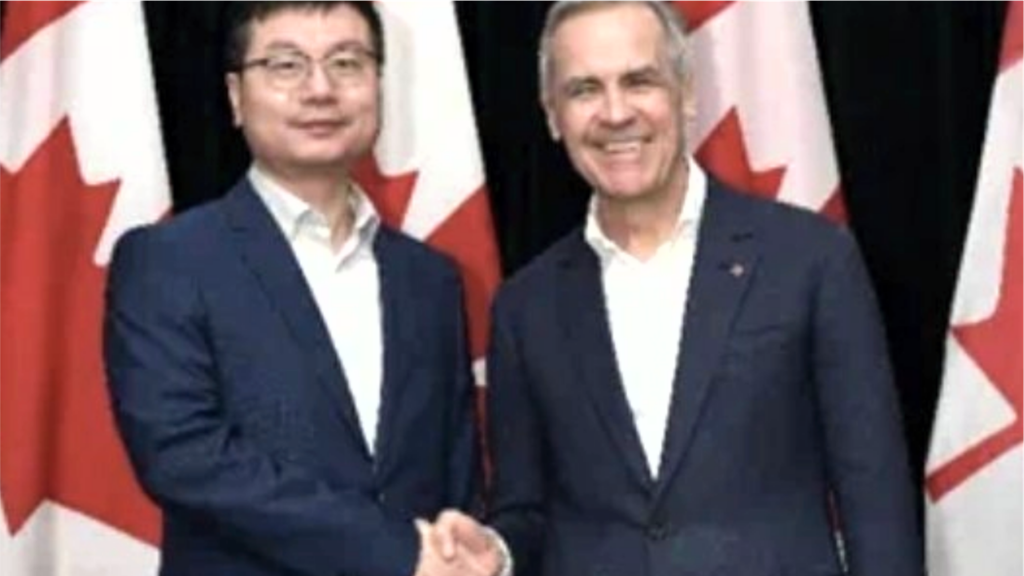
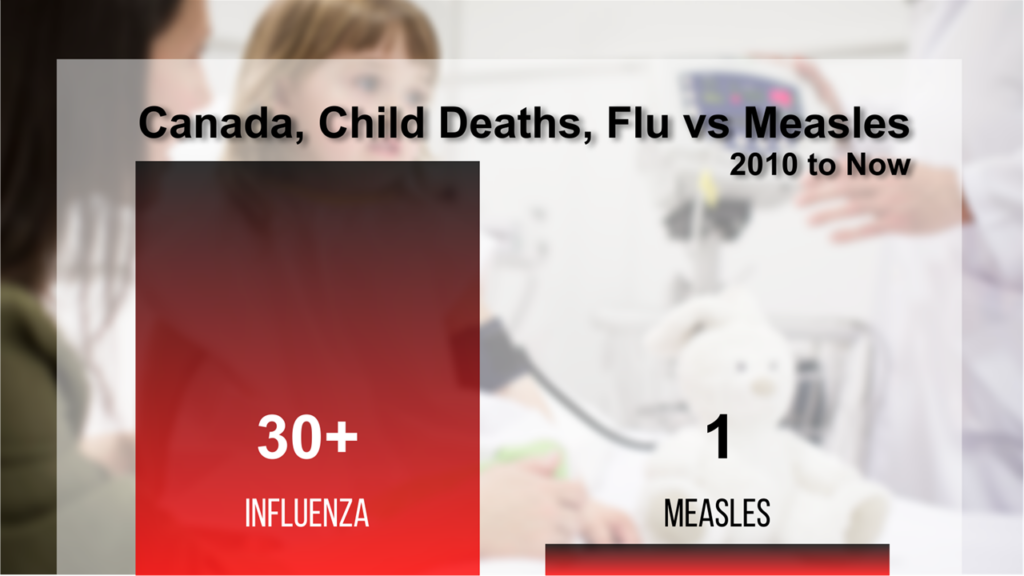
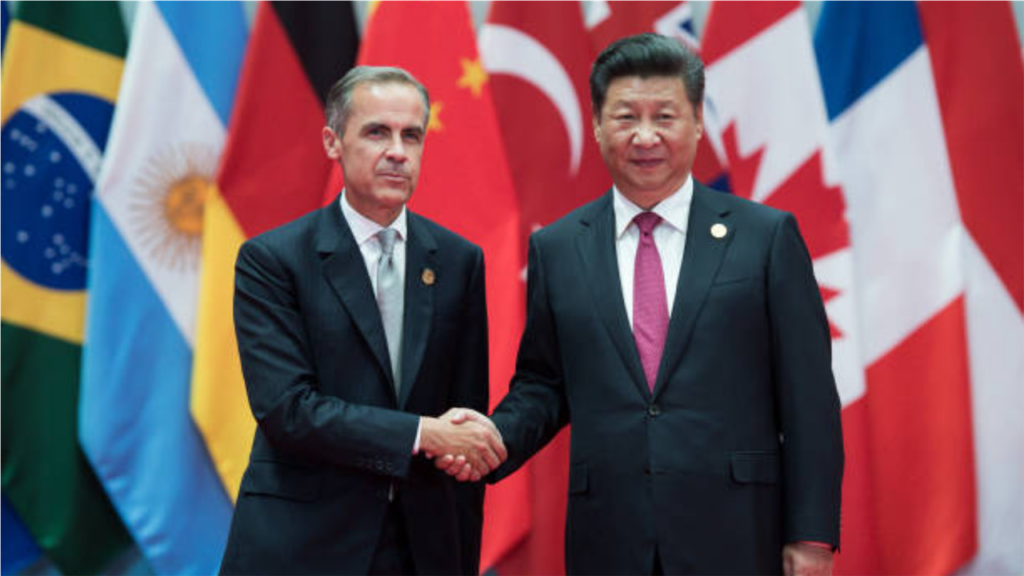
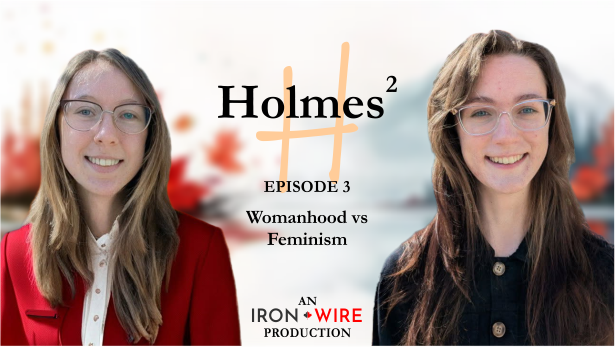
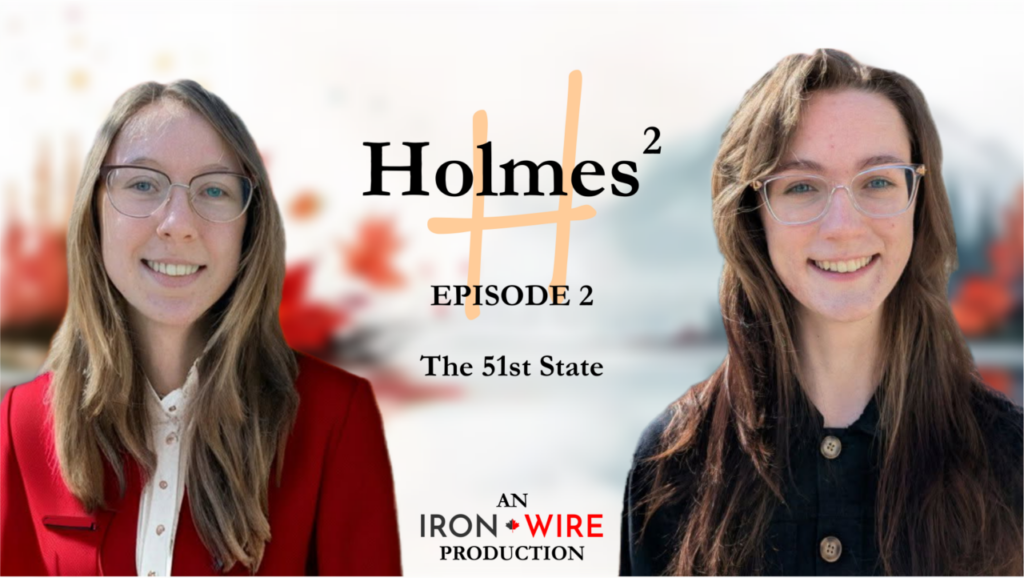
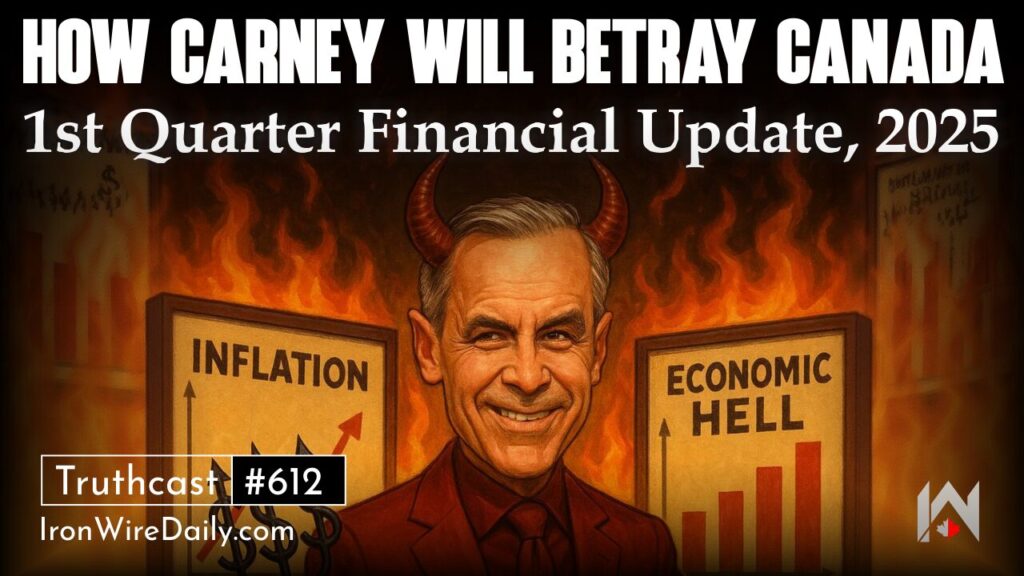
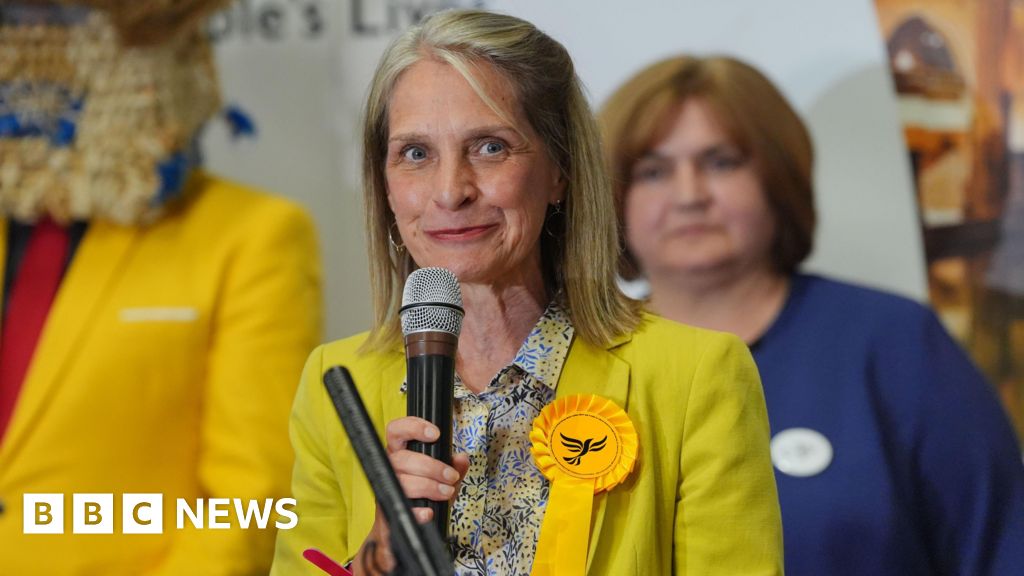
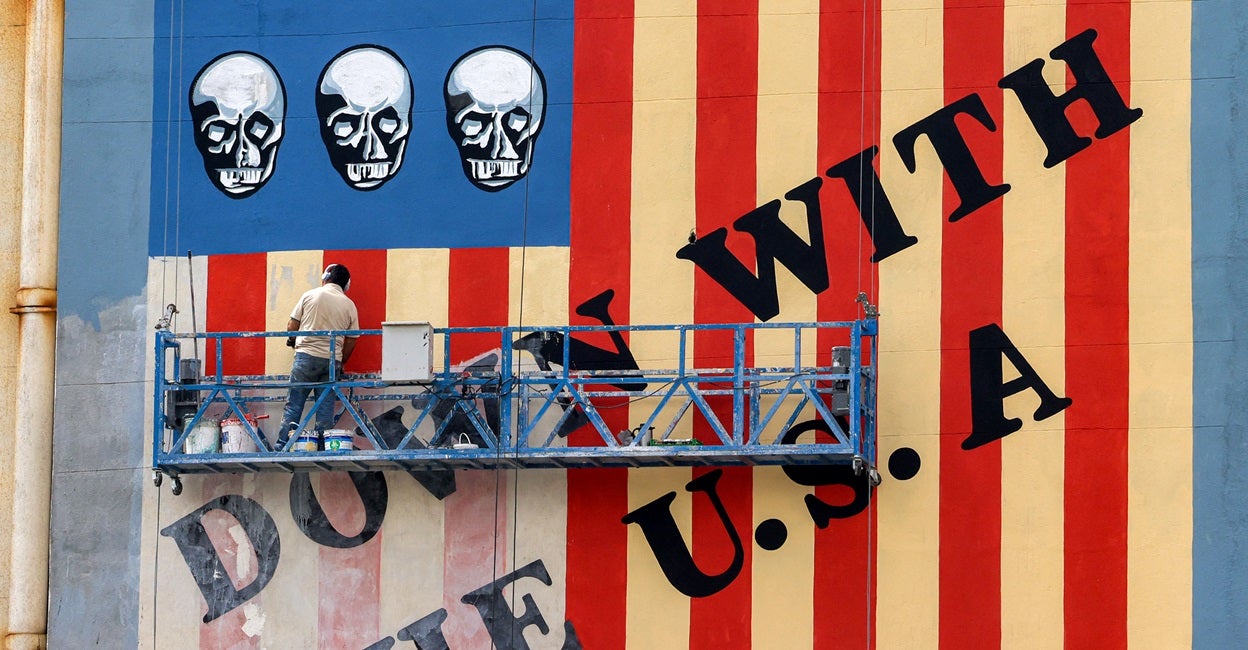


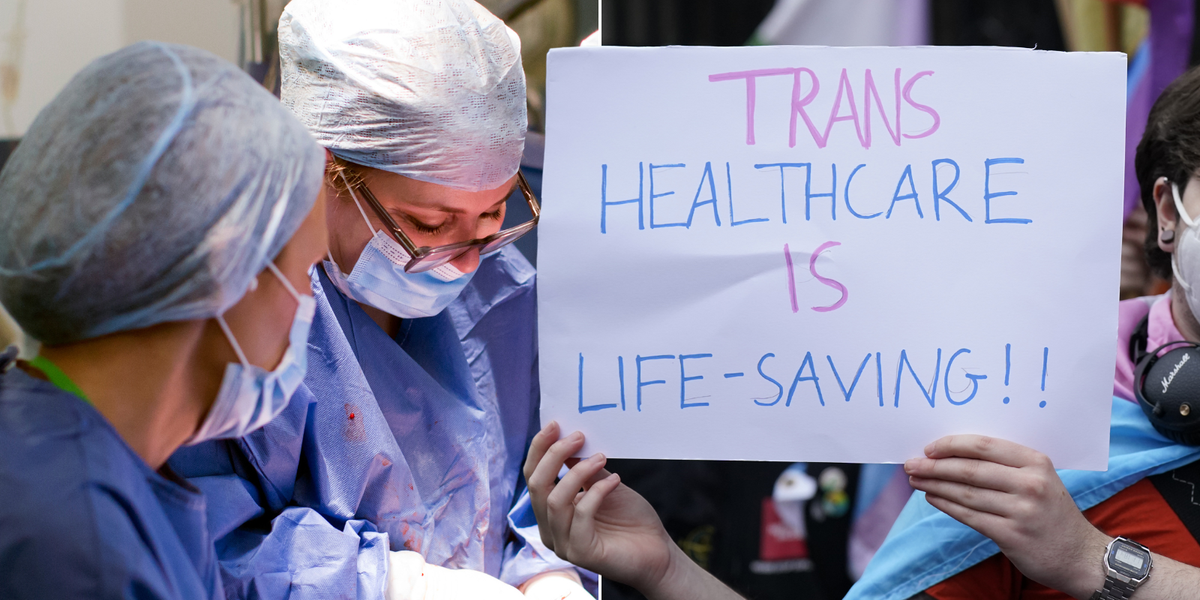


Can’t trust our Courts to be bring Justice to Canadians if it is against what the Elected Politicians wish to control Canadians for their personal agendas. Where is our “Our Land of Strong and Free”?
Myrna Kerr